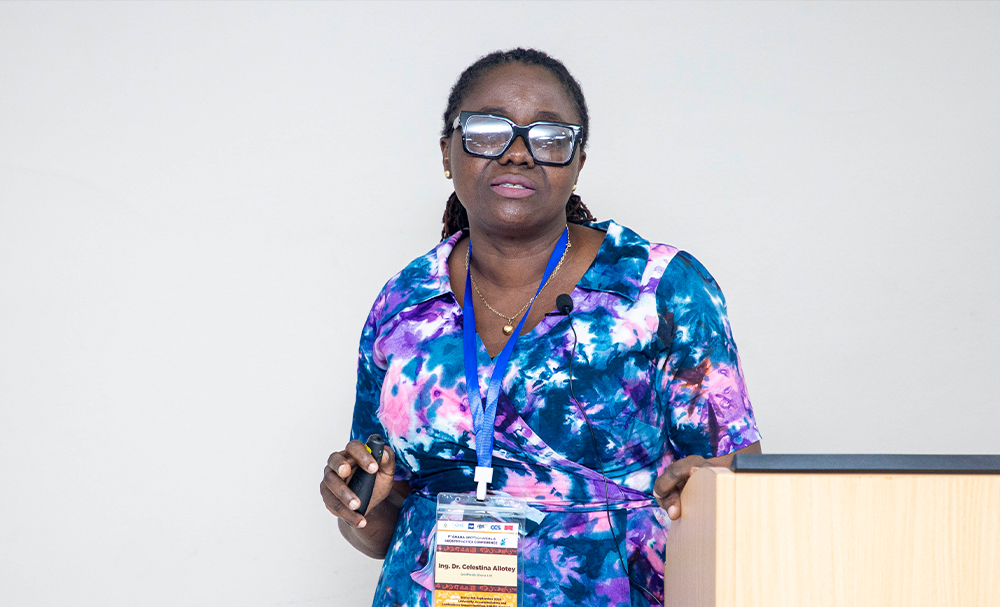Vice President of Goldfields and Head of Sustainable Development at Goldfields Ghana, Ing. Dr. Celestina Allotey, has called for increased participation of Ghanaian engineers in the mining sector, stressing that opportunities exist across the entire mining cycle.
She said that although Ghana is internationally recognised for its mining, technical and consultancy roles are still dominated by foreign experts..
“Mining is one of Ghana’s biggest industries, yet when you look at the technical aspects, you do not see enough Ghanaians leading the work. There is room for engineers at every stage, from exploration to closure, and we must step up to take our place,” she said.
She advocated this at the closing ceremony of the maiden Ghana Geotechnical and Geosynthetics Conference at the Kwame Nkrumah University of Science and Technology, Kumasi.
Dr. Allotey further urged Ghanaian consultants to build capacity, collaborate, and elevate their work to meet international standards. She added that mining projects are financed globally and must comply with strict global health safety and environmental regulations.
She encouraged young engineers to embrace the opportunities in mining by combining disciplines such as geotechnical and environmental engineering, which she described as critical to addressing emerging challenges in sustainable mining.
“I believe we can build world-class consultancy firms in Ghana if we work together, invest in training, and provide the tools for our young engineers to succeed. The opportunities are here, we must seize them,” she concluded.
Mr Reginald Hammah challenged engineers to move beyond traditional two-dimensional (2D) analysis and embrace three-dimensional (3D) approaches in geotechnical design to deliver more accurate and reliable solutions for modern infrastructure. “Our goal is to balance simplicity with realism so we can design safer, smarter and more sustainable infrastructure,” he said.
He encouraged Ghanaian engineers to seize the opportunity to pioneer 3D geotechnical analysis, leverage advances in artificial intelligence, and computational tools. “Everything should be made as simple as possible, but not simpler,” he said. “Our goal is to balance simplicity with realism so we can design safer, smarter, and more sustainable infrastructure.”
The Chairman of the Planning Committee of the Conference praised participants and organisers for their commitment.
He urged them to view the successful maiden edition as a foundation for professional development and industry collaboration. Awards were presented to outstanding participants, with Naa Korkoi Ayeh named Best Student and Nathaniel Kwakye receiving the Overall Best Paper award.

















